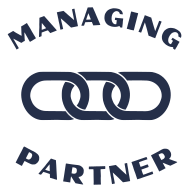How Do You Manage Client Expectations in Complex Cases?
Imagine navigating the complexities of a high-stakes legal case with confidence and clarity. In this article, insights from a Partner and an Attorney reveal the secrets to managing client expectations. The discussion kicks off with advice on setting realistic client expectations and concludes with strategies for providing transparent project updates, with a total of five expert insights shared. Dive into the wisdom of legal professionals to enhance your client management skills.
- Set Realistic Client Expectations
- Communicate Regularly About Case Progress
- Start With Honest Communication
- Explain Insurance Company Tactics
- Provide Transparent Project Updates
Set Realistic Client Expectations
Managing client expectations in complex cases is a delicate balancing act. On the one hand, it's important to be realistic about the potential outcomes and challenges that may arise. Over-promising can lead to disappointment and frustration. On the other hand, it's equally important to provide clients with a sense of hope and confidence. By setting realistic expectations, communicating regularly, and being transparent about the legal process, I strive to maintain a strong and trusting relationship with my clients, even in the most complex cases.

Communicate Regularly About Case Progress
As an attorney with over 40 years of experience, I've found that managing client expectations is one of the most important aspects of practicing law. I tell clients upfront that complex cases can involve unexpected challenges and delays. I provide examples of past cases where issues arose and how we addressed them. This helps clients understand that, while the outcome may be favorable, the road there is rarely straightforward.
During a case, I communicate regularly with clients about progress, obstacles, and next steps. If timelines shift or new issues emerge, I let clients know promptly. Transparency is key. Clients would rather hear about challenges from me than be caught off guard.
Though outcomes can't be guaranteed, educating clients on the realities of complex litigation, being transparent about issues, and suggesting alternative approaches helps steer cases to resolution. The key is frequent, honest communication. If a client understands the challenges and is part of crafting solutions, they tend to remain confident in the strategy, even when snags arise.
While outcomes matter, managing expectations is equally important. An unfavorable result despite your best efforts is one thing, but a disgruntled client because they were uninformed about challenges is another. Frequent contact, honesty about the realities of a case, and a willingness to listen to client input is how you build trust and effectively represent them.

Start With Honest Communication
Effectively managing client expectations in complex cases at Right Lawyers starts with clear and honest communication from the very beginning. One of the first things I do is sit down with the client to explain the complexities of their case, outlining the possible outcomes, timelines, and potential challenges. It's important to be upfront about both the strengths and weaknesses of the case so that the client isn't surprised by any twists or turns down the road.
Another key part of managing expectations is setting realistic goals. Clients often come into complex cases with high hopes or misconceptions about what the legal system can do for them. I make it a point to explain what's achievable under the law and what may be less likely. This not only helps align their expectations but also builds trust, as they appreciate the transparency and honesty.
Throughout the case, I ensure to keep clients updated regularly, even if there's no major progress to report. Frequent updates are crucial in maintaining trust and ensuring clients feel informed. I also make sure they understand that legal processes, especially in complex cases like custody disputes or high-asset divorces, can be lengthy and that patience is often necessary.
Additionally, I encourage clients to ask questions and clarify anything they're unsure about. This creates an open dialogue where they feel comfortable expressing concerns, and it allows me to address any misunderstandings early on.
Ultimately, managing expectations is about balancing transparency, education, and empathy. By being straightforward and maintaining open lines of communication, I'm able to guide clients through complex cases while helping them stay grounded and focused on the best possible outcomes.

Explain Insurance Company Tactics
In one particularly complex case, my client had suffered severe injuries and understandably expected a quick resolution. I sat them down and explained, in plain terms, the reality of how insurance companies operate. They often drag things out—especially in high-stakes cases—to pressure clients into settling for less. I used my experience from the other side as an insurance-defense lawyer to walk them through the timeline, potential obstacles, and how we would counter them.
Managing expectations isn’t just about giving clients the facts—it’s about maintaining constant communication. I make sure my clients understand that we’re in it for the long haul and that patience often leads to a much better outcome. This balance of transparency and reassurance helps them stay focused on the ultimate goal: fair compensation.

Provide Transparent Project Updates
As a construction manager-turned-writer, I understand that client expectations must be carefully managed in complex, long-term projects. Early on, I explain the challenges inherent in the work, using examples from past projects that took unexpected turns. This helps set realistic expectations about potential roadblocks and timeline changes.
Regular communication is key. I provide updates on progress, issues arising, and next steps, even if there are no major changes. Clients appreciate transparency and prefer advance warning about problems rather than being caught unaware. In one large construction project, close communication about permitting delays allowed us to develop workaround solutions and minimize the impact.
While outcomes can’t be guaranteed, educating clients about the process, acknowledging challenges transparently, and suggesting alternative strategies helps guide even very complicated projects to successful completion. Open, honest communication through frequent updates is essential. If issues emerge, we work to address them promptly and directly. Managing expectations is often about navigating unforeseen obstacles together.


